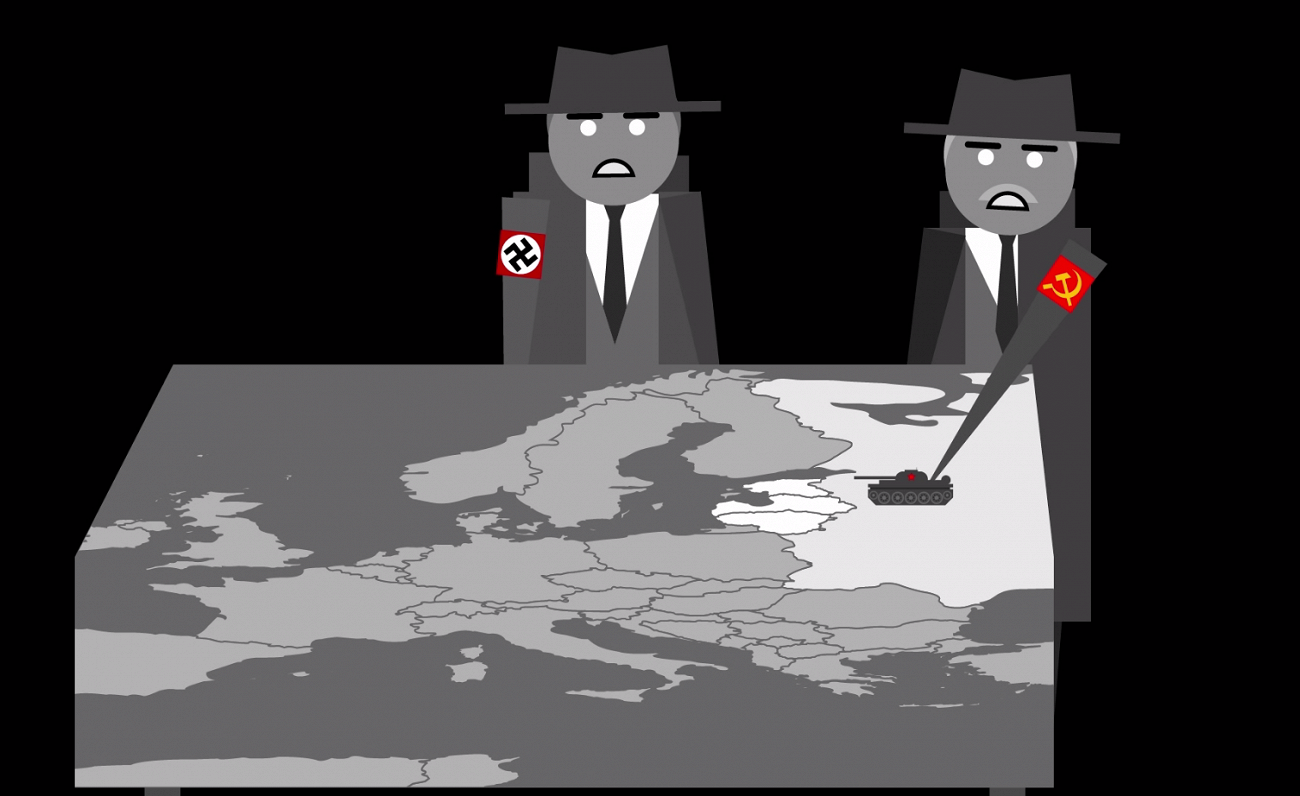"The Political Director pointed out that the draft legislation contains an interpretation of historical events that contradicts internationally well-established, undeniable and unambiguous facts, supported by extensive documentary evidence, and it may therefore be regarded as distortion of history," said a statement from the Latvian Ministry of Foreign Affairs.
The adoption of such legislation "would impact Latvian-Russian bilateral relations and the EU's relations with Russia," the statement said, adding that "The Latvian Foreign Ministry categorically rejects attempts to justify the ruthless and bloody atrocities committed by the two 20th century totalitarian regimes of Stalinism and Nazism."
"Whatever the objectives of the authors of the draft legislation, the Latvian Foreign Ministry must, for the record, state that even if such legislation were to come into force, it would not have any legal effect with respect to the Republic of Latvia," it concluded.
The secret protocol of 23 August 1939 Molotov-Ribbentrop Pact (a non-aggression between Nazi Germany and the USSR) divided the eastern part of Europe into spheres of influence and set the stage for the Soviet Union's occupation of the Baltic States in 1940. For decades, the existence of the secret protocol was denied by the USSR; in 1989, however, the Congress of People's Deputies of the USSR condemned it with a formal decision.
On 15 June 2020, in Vilnius, the foreign ministers of Latvia, Estonia, and Lithuania agreed to simultaneously invite Russian ambassadors to each Baltic State to discuss the matter at their respective foreign ministries, the Latvian MFa said. However, the equivalent ministries in Estonia and Lithuania expressed it in slightly stronger diplomatic terms as "summoning" rather than "inviting" their respective Russian amdassadors.
Today @MFAestonia summoned ?? Amb to express concern over legislative initiative in #Russia to exonerate #MRP & its secret protocols – and through that two horrendous totalitarian regimes. Hope there is enough respect in Russia for #WWII victims not to proceed w/ this initiative. pic.twitter.com/pRN10bnZgF
— Urmas Reinsalu (@UrmasReinsalu) June 18, 2020
1/5 Russia’s attempts to revoke condemnation of the Molotov-Ribbentrop Pact & its Secret Protocols show its disregard to int'l law & public opinion. Such historical revisionism is an attempt to whitewash totalitarian crimes and manipulate current political agenda. #HistoryMatters https://t.co/m0fSYrN8AD pic.twitter.com/8sNBxNt38O
— Lithuania MFA (@LithuaniaMFA) June 18, 2020




























